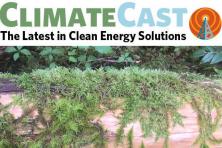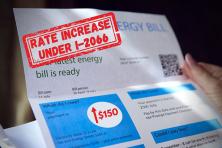Subsidizing climate chaos
President Biden’s proposed American Jobs Act is set to be one of the most consequential pieces of climate legislation in history. After the White House announced last week its plans to fund the new infrastructure spending in part by cutting tax breaks and subsidies benefiting fossil fuel companies, the industry reacted with predictable protest. A statement from the American Petroleum Institute insisted: “it’s important to note that our industry receives no special tax treatment,” and called for “a level playing field for all economic sectors.”
Such claims didn’t pass the smell test for a number of journalists and analysts who were quick to enumerate the different ways the US does deeply subsidize oil, gas and coal production—mostly through what Yale economist Matthew Kotchen calls “implicit subsidies,” to the tune of some $62 million per year in environmental damage, health care costs, inefficient transportation practices and the like. "These numbers clarify why many in the fossil fuel industry oppose more efficient regulatory reform," writes Kotchen; "they may also shape the way policymakers view the prospects for additional subsidies going forward." The extent to which Biden’s proposed policy changes might address these implicit subsidies is not clear.
An about-face towards environmental justice
The Environmental Protection Agency this week announced a broad new crackdown on industrial pollution which disproportionately harms communities of color. In a complete reversal from the previous administration’s priorities, Administrator Michael Regan called upon EPA staff to “infuse equity and environmental justice principles and priorities into all EPA practices, policies, and programs.”
Better batteries
President Biden’s infrastructure plan aims to give electric vehicles a huge boost. At the same time, ongoing technological advances are aimed at overcoming some of the consumer anxiety that can come with transitioning to electric vehicles. Improvements in battery capacity make charging stops less frequent. And a chemical engineer in Utah is developing a method that could charge an EV battery five times faster than is currently possible.
Consumers may also worry about the end-of-life environmental impact of those lithium batteries. A number of companies in the US and Europe are working to develop viable technology and business plans for the complicated process of recycling lithium ion batteries used in EVs, e-bikes and other equipment. Recycling the batteries will keep them out of landfills and provide a non-extractive source for lithium, nickel and other metals.
Electric Fahrvergnügen
The number of US automakers making new commitments to electric vehicle production continues to expand, with General Motors unveiling plans for an electric Silverado pickup truck this week. Volkswagen, meanwhile, ran an April Fools prank that confused some media outlets into announcing that the company’s US branch would be rebranding itself “Voltswagen” in honor of a new line of EVs. As Auto News noted, the joke might have been more funny if the company hadn’t been caught lying about the fuel efficiency of its cars just a few years ago.
Listen to the flowers
It’s cherry blossom time in parts of the country. Scientists keeping track of the annual event say that the blooms are getting earlier on average—an indication of changing weather patterns, and also of “the greater, looming climate crisis.”





